Engaging workers who are not employees – New IR35 rules from 6th April 2021
Where workers are engaged to carry out specific projects or functions for an organisation, they are often not treated as employees and they are not paid through the payroll (off-payroll working). Where the worker is engaged as an individual, it is the responsibility of the organisation to assess whether the worker is self-employed, and this has not changed. However, where the worker is engaged through an intermediary (usually a personal service company), prior to 6th April 2021 it has been the responsibility of the intermediary to make the assessment as to whether the worker is effectively an employee of the organisation. From 6th April 2021, for medium-sized and large organisations (including charities), responsibility for making this assessment shifts to the organisation engaging the worker. This change brings the private sector into line with Public Bodies which have been required to do this since 2017.
For companies and incorporated charities, the definition of medium-sized and large follows the Companies act definition. For an unincorporated charity, to qualify as medium sized or large, the charity’s income must exceed £10.2m. HMRC have advised that, when calculating charities’ turnover or income, donations and grants should be excluded. All large and medium-sized charities should carry out a review of any off-payroll workers which they engage and carry out a formal assessment, a copy of which should be passed to the workers’ intermediary.
More information can be found here
Charity Commission guidance on Responsible Investment
The Charity Commission has announced that it plans to update its guidance on responsible investment and that a consultation paper will be issued in Spring 2021. By responsible investment, the Charity Commission means investing in a way which aligns with the charity’s mission and purposes. The current guidance is set out in CC14 which deals with both financial investment and programme related investment.
Charity Governance Code Update
The Charity Governance Code has been refreshed in December 2020. The code, which is endorsed by the charity commission although not compulsory, sets out the seven principles of good governance, with separate versions for small and large charities. The main changes relate to the Diversity principle and to the Integrity principle:
- The Diversity principle has been renamed the Equality, Diversity and Inclusion principle and there is a greater focus on the Trustees defining the importance of this principle for their charity and then establishing and monitoring targets and publicising progress.
- The updated Integrity principle emphasises the importance of understanding safeguarding responsibilities and establishing robust procedures including processes whereby concerns can be raised.
VAT: Digital advertising
The supply of advertising services to a charity is generally zero-rated, but there was previously uncertainty regarding digital advertising. HMRC have recently confirmed, in Revenue and Customs Brief 13 (2020), that some digital advertising can be zero rated for VAT, provided the advertising is targeted at the general public and not at specific individuals. However, HMRC continues to exclude social media advertising from zero-rating on the basis that it targets individuals by a digital address.
For more information, click here
VAT on services supplied to EU customers post Brexit
There are no fundamental changes to the way VAT is accounted for on services supplied to EU customers from 1st January 2021, with the place of supply rules remaining largely unchanged. However, charities which provide digital services such as e-journals or on-line magazines to EU members and customers may be affected by an end to the UK’s participation in the Mini-One-Stop-Shop (MOSS) regime. Sales of digital services to non-business customers are deemed to take place where the customer resides. However, prior to 1st January 2021, UK charities could avoid having to register for VAT in other EU countries through taking advantage of a sales threshold of £8,818 per annum, up to which the sales could be treated as UK sales, and the MOSS scheme for sales above this threshold, whereby EU sales could be accounted for on a UK VAT return. From 1st January 2021 there is no longer any sales threshold and the UK no longer participates in the MOSS scheme. Therefore, from that date, charities which provide digital services to their EU members and customers will have to either register in every EU country in which they make sales or register for the MOSS scheme in one EU country.
More information on the impact of Brexit on VAT can be found here
Business Rates Review
The government is due to publish its fundamental review of business rates in the Autumn of 2021 with an interim update of its progress to be issued on 23 March 2021. Rates relief is significant for charities, with a net worth of over £2 billion per year.
Timeline for updating the Charity SORP
The next update of the charity SORP is expected to be published in Autumn 2023, coming into effect for accounting periods beginning on or after 1 January 2024. A new framework for consultation is now in place with the SORP making body and the SORP Committee engaging with stakeholders through the recruitment of volunteer engagement partners representing various strands of the consultation.
Get in touch or request a call back:
Call 0330 223 6400 or complete the form to make an enquiry or request a call back (* indicates a mandatory field).



